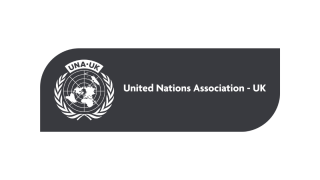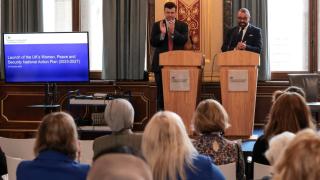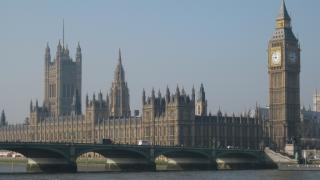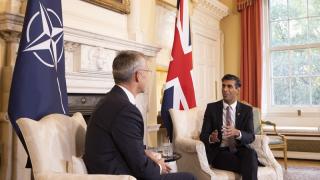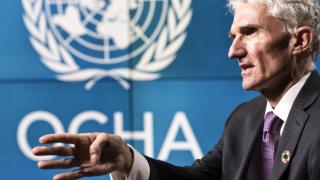
On 1 May the All-Party Parliamentary Groups on the UN, Global Security and Non-Proliferation, Genocide Prevention and on Yemen hosted the UN’s humanitarian chief, Sir Mark Lowcock, for a meeting on the humanitarian situation in Yemen. Chaired by Lord Hannay, the meeting brought a cross-party group of parliamentarians together with a range of NGO representatives to share perspectives on the humanitarian catastrophe unfolding in Yemen and UK's role in the conflict.
Sir Mark began by emphasising the extreme plight faced by the Yemeni civilian population, stating that “8.4 million are on the brink of starvation, the economy has halted and the country now must import 90% of food and fuel and almost 100% of medical supplies”. Given the reliance on external support, Mr Lowcock was pleased to note the easing of the Saudi-imposed blockades in Yemen, mentioning that blockades were the "wrong response" while adding that more needed to be done to remove restrictions, including on commercial goods entering the country via Sana'a airport.
Mr Lowcock outlined how the UN's humanitarian operation was strengthened throughout 2017, from delivering food support to three million per month at the start of the year to more than seven million by December 2017. In 2018, Sir Mark explained, the aim is to increase this capacity to 10 million per month while expanding access to water, health, sanitation and other core services as well as support for public sector salaries. Mr Lowcock highlighted the staggering proportion of those needing humanitarian assistance - 22 million out of a population of 28 million - which has led the situation being dubbed as the ‘world’s worst humanitarian crisis’.
Regarding the future of the country, Sir Mark stated that “the idea that there is a military solution has been tested to destruction” stressing the need for all parties to engage meaningfully with the United Nations, without preconditions, to achieve a lasting, negotiated settlement towards sustainable peace.
Responding to Mr Lowcock’s presentation from a UK perspective, Yemen expert Andrew Mitchell MP gave a damning account of the Britain’s role in the conflict. Mr Mitchell explained that the UK is in a “bad place” on this issue, arguing that the UK has “diminished its position at the UN through our slavish support for Saudi Arabia”. He described the UK as “complicit” in the fallout from the conflict and selective in its condemnation of those responsible, citing the UK’s frequent condemnation of Houthi rebels in contrast to a comparative absence of criticism of Saudi-led attacks on Yemeni civilians. Echoing Sir Mark’s statement on efforts for peace, Mr Mitchell emphasised the need for negotiations without preconditions and added that the UK may be able to play a convening role in this regard.
Event chair Lord Hannay highlighted the ways in which Yemen has been “pushed to the sidelines”, describing a “global negligence” towards the crisis and specifically noting a lack of action from the UK on the Security Council, where the UK is the ‘lead’ country on Yemen. Keith Vaz MP, Chair of the Yemen APPG, echoed the comments made by Lord Hannay and Andrew Mitchell MP, adding that, without peace, sufficient aid will not be able to get into the country and noting that the situation is in part a failure of the British Government.
During the wide-ranging discussion that followed, there was general agreement that the UK needs to do more to fulfil its responsibilities at the Security Council on Yemen as well as support the work of the recently appointed Special Envoy on Yemen, Martin Griffiths.
For more information on UNA-UK’s work on Yemen, see our 'Yemen Can't Wait' campaign.
Image: Mark Lowcock, UN Under-Secretary-General for Humanitarian Affairs and Emergency Relief Coordinator. Credit: UN Photo/Mark Garten

